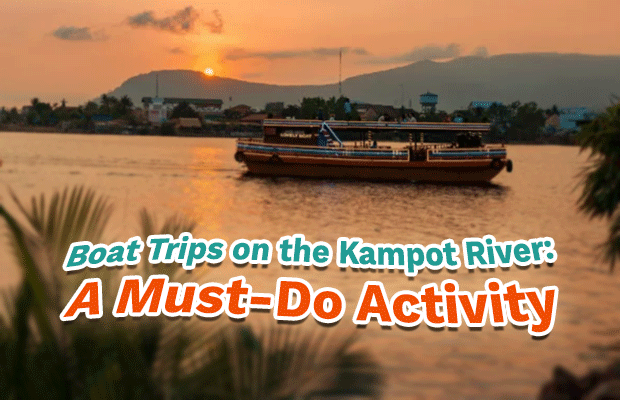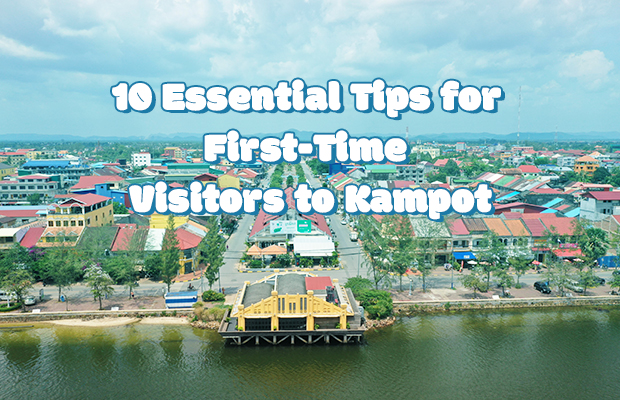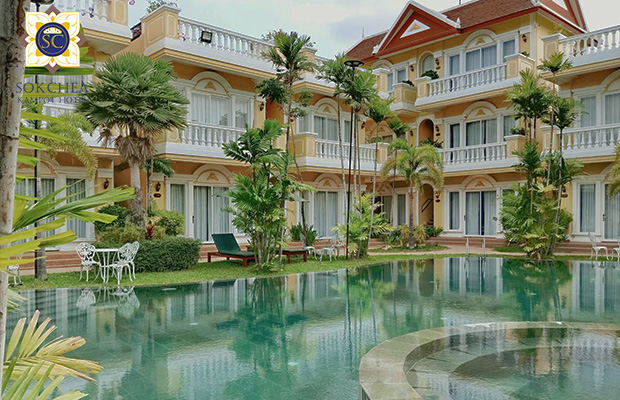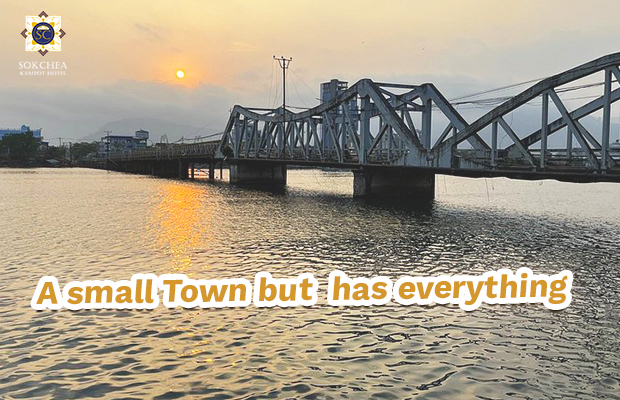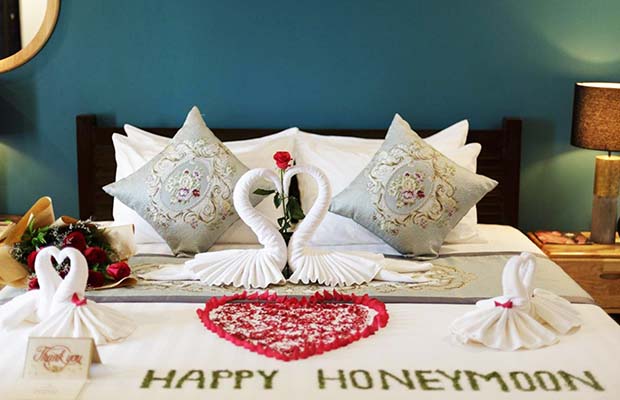Kampot is a small riverside town in southern Cambodia, yet it holds a unique charm that draws travelers from around the world. Though modest in size, Kampot offers a complete and memorable travel experience. Nestled between the Elephant Mountains and the Teuk Chhou River, the town boasts stunning natural landscapes, colonial-era architecture, cultural richness, and a laid-back atmosphere that sets it apart from Cambodia’s busier destinations. In addition to these attractions, Kampot is also a province famous for its wide variety of tropical fruits. Walking through Kampot’s town center, you’ll find quiet streets lined with charming French colonial buildings, cozy cafés, art galleries, and local boutiques—offering both a nostalgic feel and modern comforts. The river, slow and scenic, lies at the heart of the town’s identity. Many guesthouses, hotels, and restaurants are set along the riverside, offering spectacular views, romantic sunsets, and peaceful mornings that invite visitors to relax and recharge.
For those who love nature, Kampot is a gateway to many outdoor adventures. A trip to Bokor Mountain reveals a mysterious mix of misty forests, an abandoned French hill station, a giant Buddha statue, and panoramic views that stretch all the way to the coast. The mountain air is cool and refreshing, and the journey to the top is as rewarding as the destination itself. Nearby, the Teuk Chhou Rapids offer a serene escape where visitors can relax in hammocks above the flowing water or take a refreshing swim. Kampot is also home to some of Cambodia’s most prized agricultural treasures. The world-renowned Kampot pepper—celebrated for its distinctive aroma and flavor—is cultivated in the nearby countryside. Visitors can tour pepper farms to learn about the traditional growing process and sample different varieties, including black, red, and white pepper. Equally impressive are the salt fields, where local workers continue to harvest salt using time-honored methods. These fields, especially during sunrise and sunset, offer not only a picturesque view but also a window into the daily lives of the people who live and work there.
Beyond its natural and agricultural appeal, Kampot’s culinary scene is diverse and delicious. From traditional Khmer dishes like fish amok and Kampot pepper crab to Western comfort food and vegan café fare, the town caters to every palate. The night market and riverside food stalls add vibrant local flavor, serving everything from grilled seafood to tropical fruit shakes. For culture enthusiasts, Kampot does not disappoint. The town has a small yet lively arts scene, with occasional live music, exhibitions, and cultural workshops. You can visit historic temples, explore the Kampot Provincial Museum to learn more about the region’s history, or take a short trip to Phnom Chhngok Cave Temple, where an ancient brick sanctuary lies hidden inside a limestone cavern.
What truly sets Kampot apart is its slow and peaceful rhythm. Life here moves at a gentle pace, allowing visitors to fully unwind and immerse themselves in the serene surroundings. Whether it’s taking a yoga class by the river, riding a bicycle through the tranquil countryside, or enjoying a sunset cruise with a cold drink in hand, Kampot offers the perfect setting for relaxation. It also serves as an ideal base for exploring nearby attractions such as Kep—a coastal town famous for its crab market and seafood—or Rabbit Island (Koh Tonsay), just a short boat ride away.
Despite its small size, Kampot offers a well-rounded mix of experiences. Its friendly community, welcoming expat population, and growing selection of eco-lodges and boutique hotels make it a destination suited for everyone—from solo travelers and couples to families and retirees. Whether you’re seeking relaxation, adventure, cultural immersion, or culinary delights, Kampot truly has it all. It is a perfect example of how small places can offer big experiences, and it continues to win the hearts of those who take the time to explore its quiet magic.


